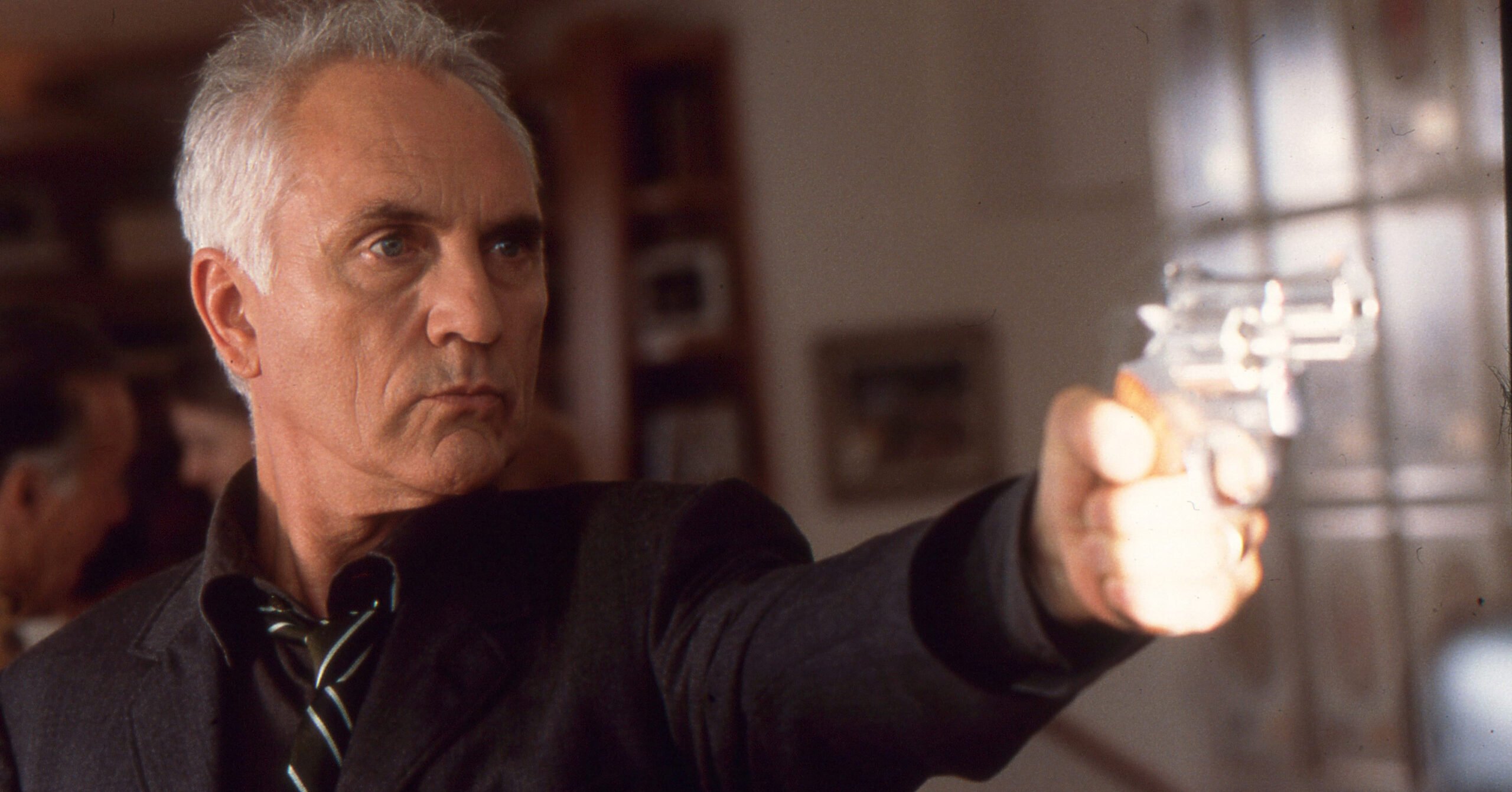The bare bones of The Limey’s story — vengeful Cockney ex-con Wilson (Terence Stamp) flies to LA to investigate the suspicious death of his daughter Jenny — are gripping enough, but what Steven Soderbergh does with them elevates this neo-noir thriller into something utterly singular and stacked with layers upon layers of meaning. An icon of London’s Swinging ‘60s scene, Stamp is pitted against laidback symbol of ‘60s American counterculture Peter Fonda (as Jenny’s sleazy older boyfriend), giving their face-off grander cultural stakes. The extra-textual significance of the casting is deepened by Soderbergh’s ingenious references to the actors’ heyday: in flashbacks to Wilson’s happier past, for example, we’re shown the actual Stamp in his younger years (courtesy of scenes borrowed from 1967’s Poor Cow).
The Limey is also a brilliant showcase for editor Sarah Flack’s technical inventiveness: though the narrative is largely linear, the film cuts to and from scenes and sounds at unexpected points, giving the film an almost David Lynch-like sense of eerie fragmentation. Conjuring up a nightmare LA atmosphere isn’t all the editing does, either, as the film’s puzzle pieces are expertly reassembled to reveal an emotional gut-punch of an ending. In short, this high point in Soderbergh’s filmography is a must-see for any fan of cinema.
Synopsis
The Limey follows Wilson, a tough English ex-con who travels to Los Angeles to avenge his daughter's death. Upon arrival, Wilson goes to task battling Valentine and an army of L.A.'s toughest criminals, hoping to find clues and piece together what happened. After surviving a near-death beating, getting thrown from a building and being chased down a dangerous mountain road, the Englishman decides to dole out some bodily harm of his own.
Storyline
When his daughter dies in seemingly suspicious circumstances in Los Angeles, a Cockney career criminal takes justice into his own hands.
TLDR
Not many people know this but you’re actually eligible to claim a degree in Cockney rhyming slang after watching this.
What stands out
Terence Stamp’s performance. With his steely blue eyes, ferocious physicality, and ability to rattle off Cockney rhyming slang like it’s his mother tongue, he enters the film as a blazing presence: in one scene, for example, cinematographer Ed Lachman shoots him so that he seems to rise from the dead — an impression that is entirely believable, given his aura of indestructibility. But there are subtle suggestions of tenderness under this battle-hardened shell, a revelation that Stamp makes devastatingly complete in the film’s climactic ending. In many ways, then, this is a performance that feels full circle — both within the frame of the film and outside of it.















